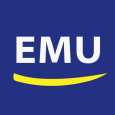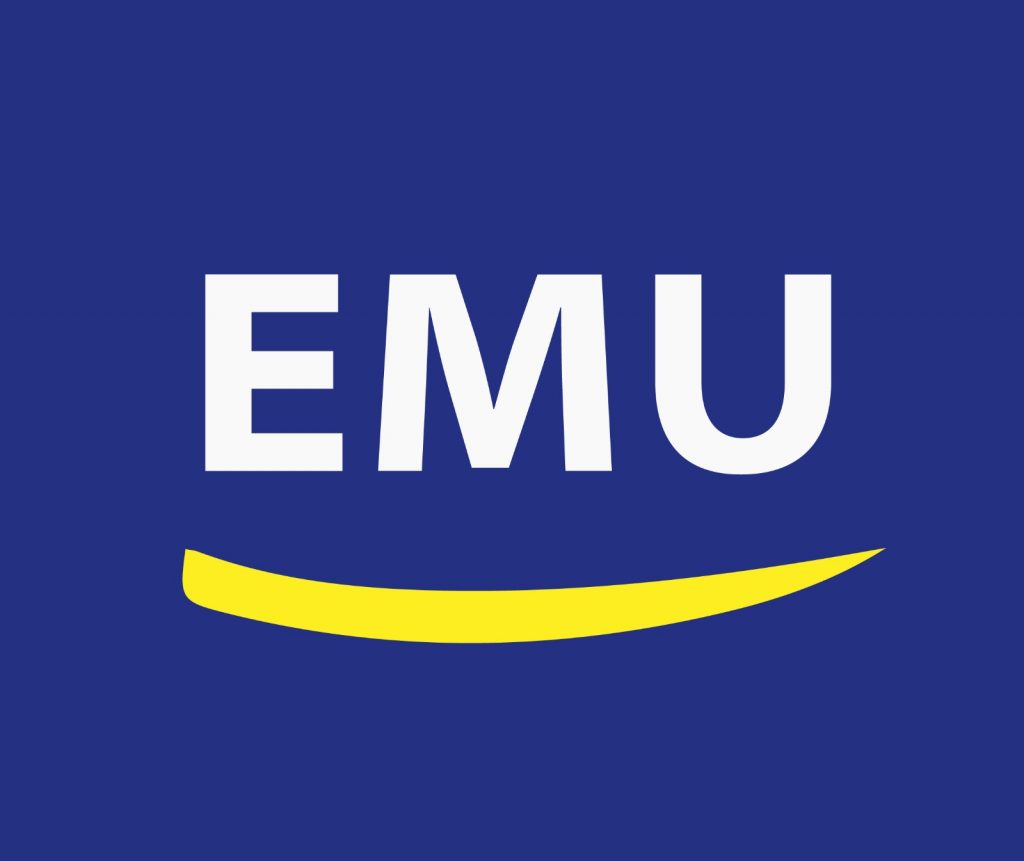The Muslims of this Continent are an important Connecting Element. By Abu Bakr Rieger
The “Ode to Joy” is the great hymn of Europe. However, more and more Europeans do not sing along to it so fervently when it says: “Be embraced, you millions”. The financial crisis and the controversial payments to the Greeks have seriously shaken the idea of Europe and its foundations. On the horizon, uneasy alliances of right and left nationalists may be discerned – from the Muslim point of view.
Of course, the usual debates have long since flared up regarding the task of integrating possibly millions of new Muslims in the EU. All too readily is the role of Muslims reduced to a security problem while the positive potential of European Muslims for integration is underestimated, despite the fact that the history of the Balkans in the 1990s has demonstrated that the European Muslims, at least in their absolute majority, were not in any way to be identified by sentiments of revenge or terror. And once again, we encounter the fallacy of many Europeans who cannot or do not want to see that Islam not only was and is part of Europe, but that also millions of European citizens are Muslims, and in no way regard themselves as “foreigners” or “immigrants”.
Europe’s Muslims in the final analysis embody three major groups: the original Muslims living here, be it in the Balkans, Russia or Andalusia, those born in Europe or those Muslims who speak European languages, and the growing number of “new” Muslims who actively profess Islam. All together they destroy the false thesis that Islam may only be attributed to a particular culture; indeed in many cases they are enthusiastic representatives and heirs of European culture. Slowly, the view prevails – for example in Islamic architecture in Europe – that one should visibly manifest with confidence this distinctively European cultural approach.
While Europe is looking for an idea of itself that can be expressed not just in numbers and is not limited only to a secular materialism, so too the Muslims are reflecting about their own characteristics. Their identity, as defined recently at a meeting of European Muslims in Weimar, may best be described as a sort of triad: citizens, Goetheans, Muslims. Thus Muslims defy a naive definition reduced to a single characteristic. They have rights and obligations, read European literature, take part in the debates on the European philosophy, feel at home without the need for any nationalism and live – quite naturally – as practicing Muslims.
Apart from these spiritual self-definitions, Muslims are also an important link between European regions. They live in Russia, Turkey and the Balkans, but also in the countries of the North. They could very well make an important contribution to understanding among European nations. A commitment of this nature would of course extend far beyond the usual tourism. In order to understand European Islam oneself, however, one must allow for educational travel to Kazan, to Edirne, to Sarajevo, Cordoba or even to Cologne or Birmingham. On such trips one will experience widely differing manifestations of Islam in Europe, even if the difference arises merely from whether the mosque stands in the city centre or in a commercial area. The fact is that Islam will become more visible in all its facets across Europe. One may read whatever one wants into this matter – but Muslims will undoubtedly in the future be among the major players on the European stage.
Of course, the phenomenon Islam in Europe will continue to be debated for quite some time in Brussels. It has long been thought that the triumphal march of secularism would surely encompass, if not the whole world, the whole of Europe. This certainty is gone today. Rather European institutions are now more and more preoccupied with the presence of Islam. Muhamed Bascelic in his very readable doctoral dissertation “Islam in the European unification process” has identified the legal, historical and philosophical backgrounds to this matter. The fact is states Bascelic, “Islam is already part of the European legal order”. This development will also continue because only with the membership of Bosnia, Kosovo or Albania in the EU will the security structures in these key regions be able to function in the long term for the benefit of peace in Europe.
Of course, the process of Europe’s meeting with Islam does not take place overnight. In a study for the European Parliament from the year 2007 it states in terse – but not entirely groundless terms: “Not even the Muslims of the second and third generation in Europe have been able to create in large numbers a European identity which makes it no longer necessary to turn to or think back to their own national origin (outside Europe) or that of their parents.”
The argument alludes correctly to the situation which many Muslim organizations continue to hold to whereby “ethnicity” and not, for example, the simple obligation of Zakat, is the determining criterion. Some communities and their facilities, therefore, appear to outsiders as extraterritorial areas. But this isolation is changing under increasing public pressure on the Muslims. Ironically, it is the current wave of refugees that could further undermine this structure. Not only Europe needs to be more colourful, but also the associations cannot permanently avoid this development. Anyway for the young element any link back to the former homelands of their forefathers in the organizations has less and less meaning. They also willingly help the refugees, while they do not care what ethnic group they belong to.
For a long time the European Muslims were not really taken seriously as scholars or Muslim intellectuals. This is likewise changing. The prejudiced idea that European Muslims practice their Islam wrongly is untenable, just as the alleged opposition between liberal and conservative Muslims which is projected from outside. In the day to day life of European Muslims and their search for the middle ground, attitudes that could be described as liberal and as conservative very often combine. Of course Muslims in Europe also have a strong influence on the political debate. Muslims, who have had both a European and Islamic education question the modern concept of the religious dictatorship in the Arab world, react allergically to ideologies on account of their European experience, but are also not naive when it comes to the changes in European democracies themselves, be it through the rampant financial technology or the growing security apparatus.
Of course there are many differences among the groups of European Muslims, but there are also important similarities. The absolute majority has concerns about the infiltration of the so a-historical and location-less ideology of radical Salafism into the European Communities. But opposing forces are also growing in this field, for example, at the hand of those Muslims who have completed a classical education in the context of the recognized schools of law. They are able to reappraise and reject the ideological contradictions of Salafism. Knowledge of these recognized traditions – affording a detailed understanding of the origins of Islam – combine with criticism of the places of “state Islam” teaching throughout the world, which obviously cannot afford to be independent in the face of corruption. Indeed “free” European teaching locations have already started to compete with the old-established sites in the transmission of knowledge.
Unfortunately, the European Muslims have hardly been effectively organized at a European level up until now – with a few exceptions, such as FEMYSO or EMU. This comes as a surprise, given that Muslims are potentially staunch Europeans rather than rigid nationalists. Added to this is the current political situation of danger. European Muslims should be clear that a burgeoning nationalism in Europe also arises at the expense of a negative dialectic against Islam. There is a clear attempt to push Islam out of the history of Europe and the Muslims of the public domain. Given their sheer numbers, the influence of the Muslims should one day also be reflected in the European Parliament.
Because of common interests, a European solidarity between Muslims living in Europe is also important. A look at the EU land of Bulgaria demonstrates this in an exemplary manner. One of the largest European Communities with more than one million Muslims lives in this country. All the Muslim communities, i.e. the Turkish Bulgarians, Pomaks and Roma, have European passports of course. Here Muslims are still struggling for their rights and their legitimate place in Bulgarian society. Notably, the Roma, perhaps the biggest population of the future, are also the subject of bio-political considerations about the future formation of the religious identity of these Europeans.
In addition there is also a typical European problem to be found in Bulgaria: many young Muslims and young imams (whose salary averages 250 EUR) are now fleeing to Germany and Western Europe. Visits by Muslims from other European countries to this fascinating country, however, are rather rare.
There is a lot to learn from this country. A nearly 500-year-long Islamic history teaches techniques of tolerance, as well as a wise urban planning, and has a remarkable infrastructure for all religious groups. The somewhat simple historical picture of the Communists which had suppressed the Islamic history of the country is being revised carefully. The relationship between Islam and Europe is actually more complex than ideologues of any colour would want to concede.
Here, in Eastern Europe, one could certainly learn how the social skills of Muslims could be effectively introduced for the public good in civil societies. Or one could say – as the conclusion of Bascelic’s work states in such a fine manner: “Although the historical events of the encounter between Islam and Christianity in Europe often convey the impression of a tense rivalry, history also repeatedly reports a successful coexistence in Europe.”



